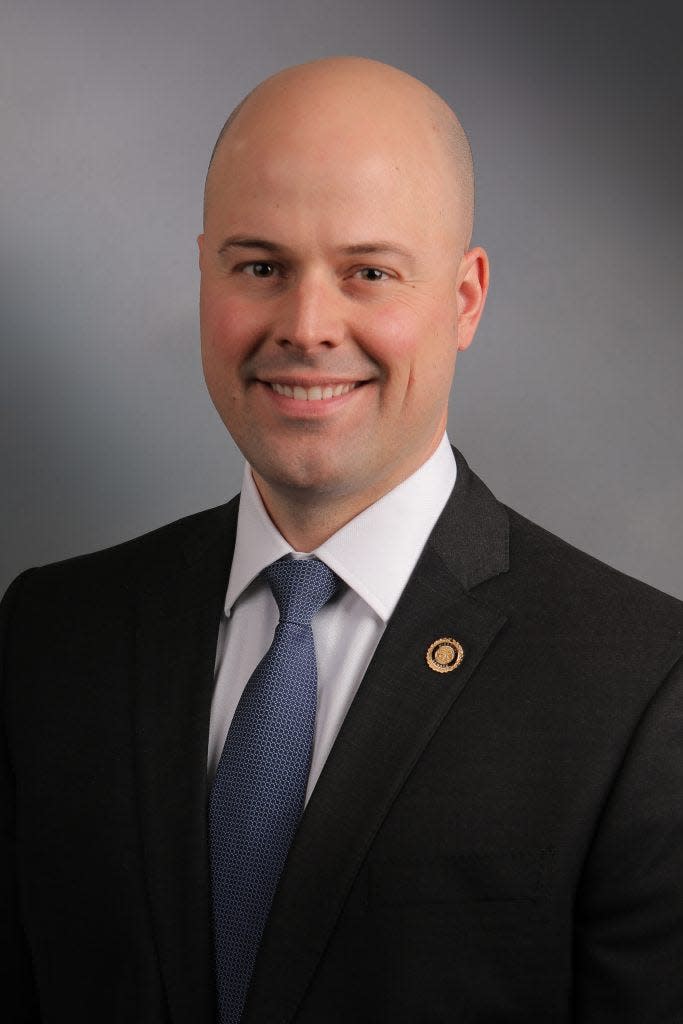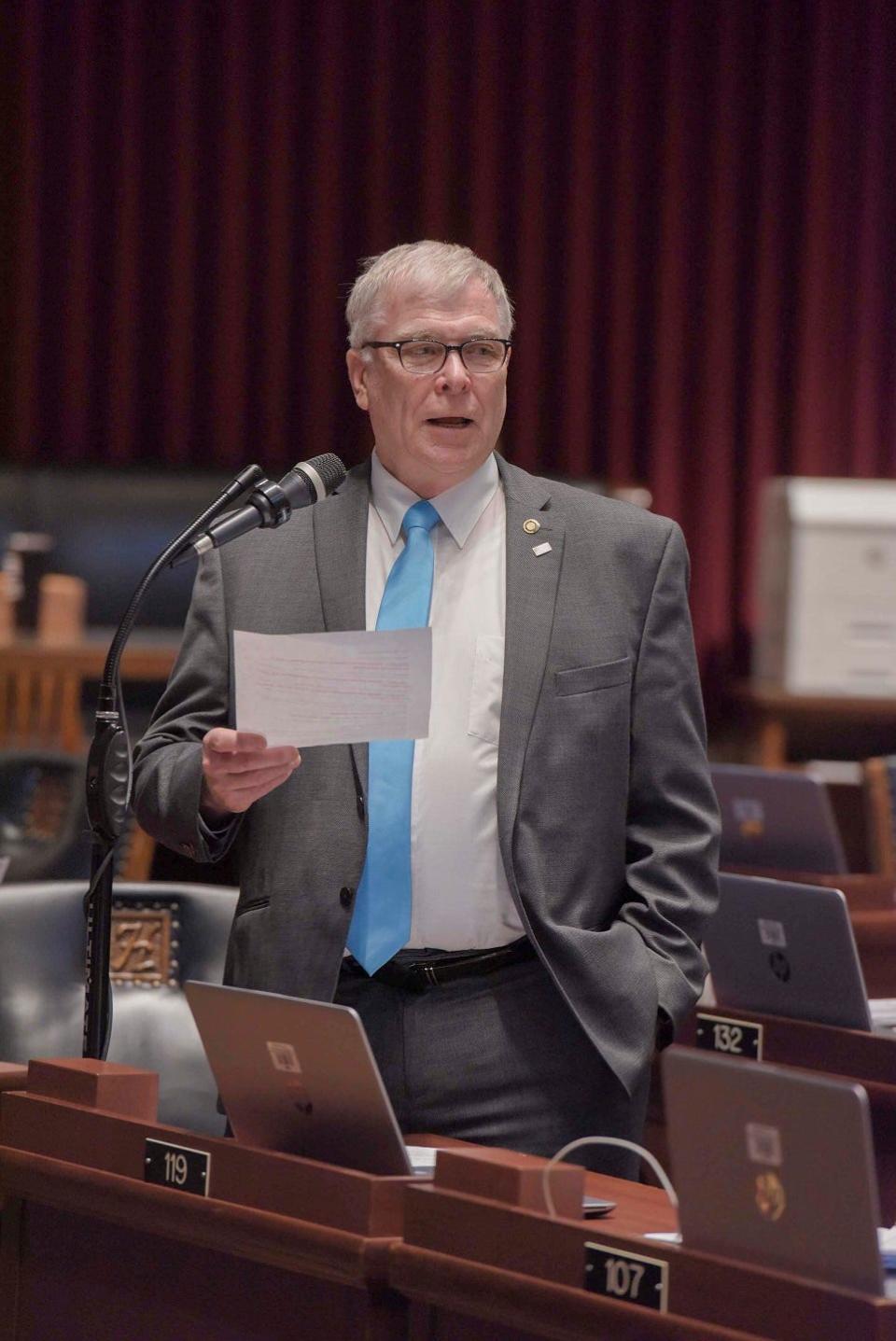Missouri legislators work to fix 2023 law freezing property taxes for seniors
The Missouri General Assembly passed a bill last year that froze property taxes for seniors, but left many questions about the details of its implementation unanswered.
Legislation from Sen. Tony Luetkemeyer, the sponsor of last year’s bill, now seeks to clarify certain points that left some municipalities confused about how to implement the freeze.
“Last year, I filed a bill, that was Senate Bill 190, which authorized a property tax credit on the primary residence of Missouri's seniors homes, effectively freezing their property taxes once they reach the age of eligibility for Social Security benefits,” Luetkemeyer said. “This offers predictability to seniors ensuring increased property taxes will never force them out of their homes.”
Under the bill passed in 2023, seniors receiving Social Security checks were eligible to receive property tax credits equal to the difference between their frozen property tax rate on the year they became eligible and the current amount of the property tax.

Counties were required to opt into the program in order for seniors to qualify. But if a county chose not to, citizens can use a ballot measure to put the question of freezing property taxes for seniors before the voters. Both Greene and Boone counties have implemented the tax freeze.
The legislation also allowed certain taxpayers who met income requirements to deduct 100% of some retirement and Social Security benefits from their taxable income.
However, questions arose surrounding the eligibility of all senior citizens, when the legislation took effect and whether it applied to property tax as a whole or just the counties’ portion. As the 2023 bill was written, the property tax freeze only extended to those receiving Social Security retirement benefits and included all property taxes.
Luetkemeyer’s current legislation, which is making its way through the Missouri House, adds clarification to his former bill by specifying that the property tax freeze is available to eligible homeowner taxpayers who are 62 or older.
“Senate Bill 756 changes the eligibility language to an age based eligibility 62 years of age or older so that it does not inadvertently exclude certain taxpayers who do not qualify for Social Security, such as those on public pensions,” Luetkemeyer said.
Some counties imposed limits on giving tax breaks to seniors with homes valued at more than $500,000, but Luetkemeyer’s bill would prohibit this practice by limiting “the definition or scope of ‘eligible credit amount’ or ‘eligible taxpayer’ as defined” in state statute.
Also, the legislation would prohibit homeowners from buying low-valued properties, locking in a low property tax and then making substantial improvements to the property that raise the property value.
Additionally, any senior that is delinquent in paying their property taxes would not be eligible for the tax credit until their account has been made current. This was a point of contention among lawmakers on the House committee, some of whom argued that this particular provision disregarded the needs of low-income seniors who are already struggling to pay their bills.
"If we're here to support wealthy seniors and freeze all of their taxes while leaving the low-income seniors behind, let's adopt this," said Rep. Mark Matthiesen, R-O'Fallon.
It also allows for increases to be made if the property is part of annexed territory included in a new taxing jurisdiction, but can then be locked in at the new tax rate to prevent future increases.
The property tax credit will be displayed on statements of taxes owed that are sent to taxpayers by county collectors.
More: Greene County adopts retiree tax freeze despite lack of clarity from state
Luetkemeyer’s legislation has passed in the Missouri Senate, and was passed by the House Special Committee on Property Tax Reform on Wednesday.
The House committee considered amending the bill to require annual applications for the tax credit for audit purposes, but the motion failed due to concern that, due to disfunctions in the Missouri Senate, changing the Senate bill in any way would ultimately result in the bill failing to pass before the end of session.
Many members of the House committee acknowledged that the bill was imperfect for a variety of reasons, however it was a necessary fix for legislation that had already raised concerns about its implementation following the passage of the first bill in 2023.
"I would recommend that we pass this and then come back with a fervor next year and fix whatever needs fixing," said Rep. Darin Chappell, R-Rogersville. "And for those of us who are freshmen, let this be a lesson we'll learn that maybe we ought to pay more attention before we actually pass bills that are improperly written in the first place."
On April 3, the House Special Committee on Property Tax Reform held a public hearing on the legislation, in which Rep. Jim Murphy, R-St. Louis, inquired as to why this legislation didn’t automatically apply statewide, rather than requiring counties to opt into the program.

Luetkemeyer explained that he was concerned that doing so would run afoul of the Hancock Amendment, the 1980s Missouri constitutional amendment that placed limits on changing statewide taxation.
“We went through this with legislative research last year, and we felt that we might run into constitutional issues,” Luetkemeyer said.
Greene County Collector of Revenue Allen Icet spoke in favor of the legislation, stressing the importance of the clarifications in implementing last year’s bill.
“I'll just say from the county's perspective, we really need this fix so as to reduce the opportunity to be sued because one county does it one way and the adjoining county does it completely differently,” Icet said.
Speaking in opposition to the legislation was David Stokes, director of municipal policy for the Show-Me Institute. He contends that counties should be allowed to impose their own local variances in implementing the bill.
“Counties are different and one size fits all, doesn't always apply,” Stokes said. “I think there's a reason to allow counties to impose their own eligibility requirements.”
He gave the example of Boone County’s recent implementation of the bill, pointing to the fact that the population skews younger in the county, meaning that this legislation will have less of an impact on the taxes that are collected from its residents.
However, the situation is different in other areas of the state, where the population skews older, meaning that local school, fire and ambulance districts that receive their funding partly from property tax will be disproportionately affected.
One specific example is the City of St. Louis and St. Louis County, which capped the appraisal value of a home eligible for the credit at $500,000 and $550,000, respectively.
“Let's not forget that seniors are the wealthiest sector of our population, so eliminating the wealthier part of the senior community from the program, I think it's something the counties should be allowed to do,” Stokes said.
This legislation will now proceed to the Missouri House for consideration by the body. With less than six weeks left in the session, the timetable is tight to get it and all other legislation across the finish line.
This article originally appeared on Springfield News-Leader: Missouri bill clarifying property tax freeze for seniors advances

